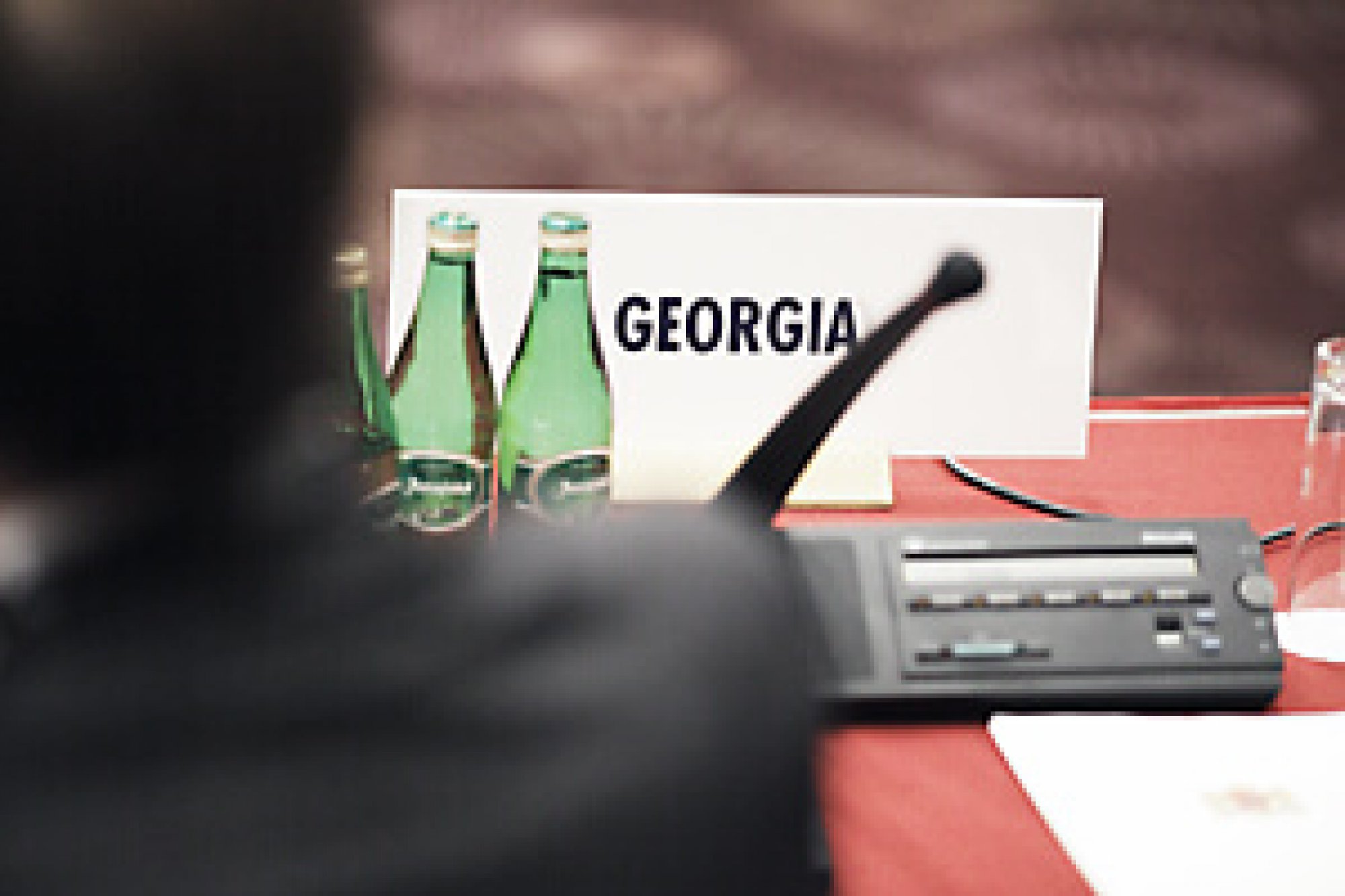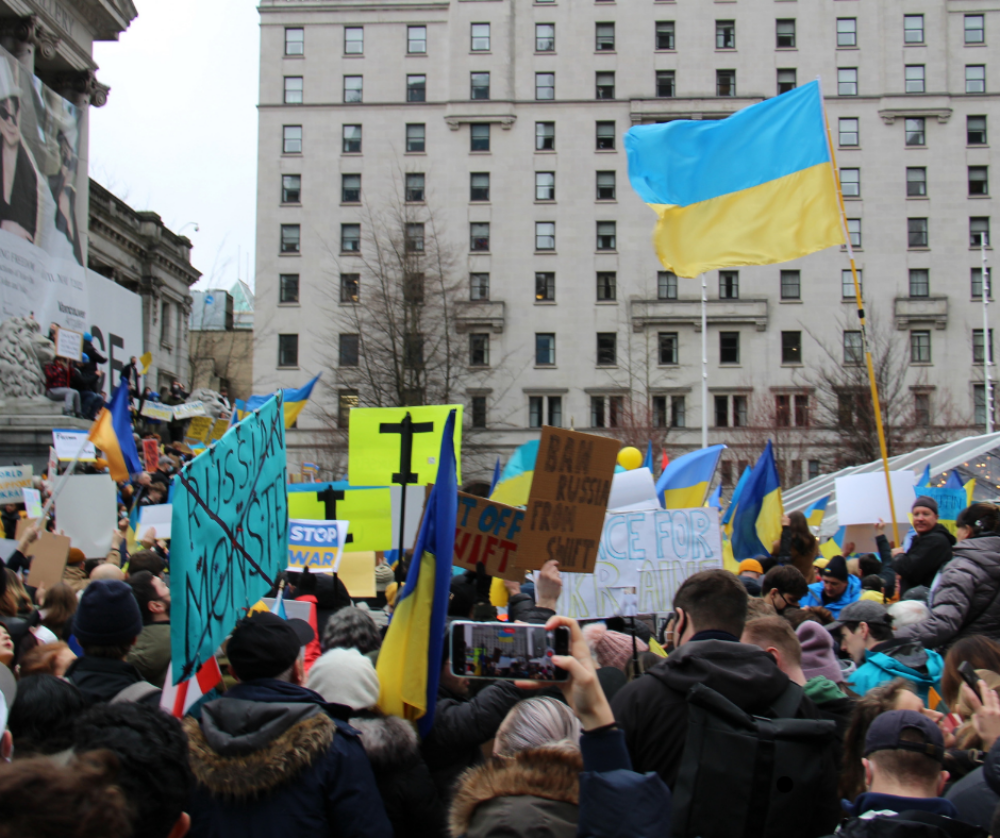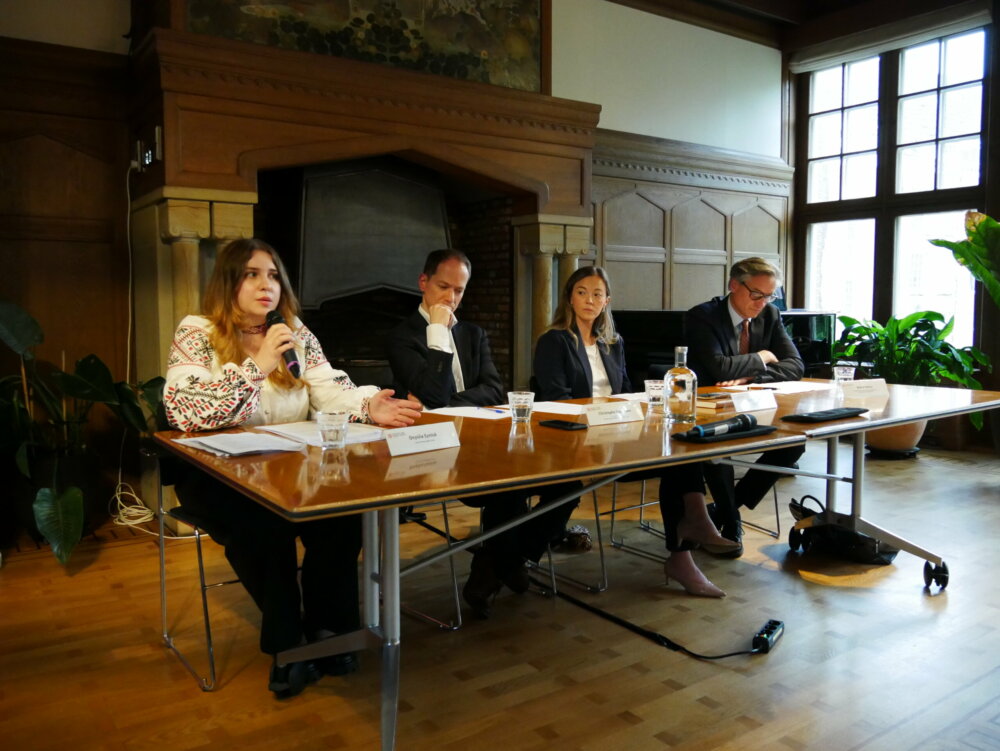Photo: OSCE /Piotr Markowski

Good Cop, Bad Cop; Georgia’s One Hundred Days of a New Democratic Dream
Over the summer month of August 2008, Georgia launched a large-scale military offensive against South Ossetia in an attempt of reconquering the territory. Four years later, on October 1, 2012, Georgia is holding its first Parliamentary Elections after the conflict that caused so much harm. The Parliamentary Elections constitute the 7th legislative elections held since Georgia’s independence from the Soviet Union in 1991. It is however the first time for Georgia to elect an alternative party from the ruling party solely based on principle of democratic vote.
The article examines the almost ten years of President Saakashvili’s Administration. During this decade, Saakashvili’s United National Movement government realized many positive works. Works like the successful reform of police forces and the determined force-back of corruption. These liberating works were all eagerly welcomed by Europe and other western nations. However, in the apparent loss of sense of reality towards the end of its reign, Georgia’s United National Movement government turned to dictating and ordering as a main style of governing. This in turn pushed citizens away from Saakashvili’s politics into voting for the opposition.
Unforeseen by even the most experienced Southern Caucasus and Georgia experts, Georgia’s 2012 Parliamentary Elections gave way to the opposition coalition Georgian Dream to sweep to victory, leaving President Saakashvili to ceded defeat.
Despite President Saakashvili’s statement that he would go into opposition there has not been a complete paradigm shift in Georgia’s domestic politics. With the Georgian Dream’s failure to gain a constitutional majority and questions over the ideological compatibility of the coalition – along with the fact that United National Movement still has the greatest representation in Parliament relative to the other parties, Saakashvili and his supporters keep hold to substantial political leverage. Also, Saakashvili will remain President until the October 2013 election. His opponent, Prime Minister Ivanishvili is expected to manifest himself, bringing in a less contentious, more pragmatic approach to relations with the country’s giant neighbour to the north.
Overall, it can be said that Georgia’s unrivalled ballot-box transfer of power elevated the country to a category fundamentally higher in terms of democratic development than virtually all other post-Soviet states. This has been the more remarkable even since Georgia had been widely cited as an example case of a failed state, with a destroyed infrastructure and economy, dysfunctional state institutions and something approaching anarchy as its governance model.
The impact of the ongoing reform of Georgia’s constitution and electoral law has lead to major shifts in Georgia’s political landscape. However, opinions vary as to whether the farsighted amendments made to the Georgian constitution on the initiative of the United National Movement are a genuine attempt to improve the country’s system of governance or that they rather are an effort by the incumbent president to cling on to power. The adoption of the amendments and the timing of their entry into force strongly suggest that the latter might be the case. Meanwhile, as a result of the changes to the Georgian constitution, a system of dual power has come in place. These and other factors suggest that Georgia’s political landscape is set to become more predictable. The article examines the degree to which this can be held true.
In the streets of Tbilisi, hundred days into the reign of the new government, there is an air of optimism amongst the people. This holds especially true when it comes to youth. The hope is that the Georgian Dream becomes a Georgian reality. The disappointment otherwise might be shattering. In spring 2013, the new leadership offers new opportunities for Georgia. It can improve its democratic system and economic growth and establish a dialogue with Russia and the breakaway districts of Abkhazia and South Ossetia. This would alleviate the frozen conflict and tense security dilemma’ on the Administrative Boundary Lines. Yet, if the transition of power does not go well, there will be prolonged power struggles that could cripple the policy making and cast Georgia back to pre-Saakashvili times.
The article addresses the overall question whether the smooth transfer of power Georgia achieved after October’s election sets a standard for democracy in the region depending on whether the new government can strengthen the independence and accountability of state institutions in what remains a fragile, even potentially explosive political climate. The victory of the Georgian Dream Coalition over the United National Movement has brought pluralism into Georgian policymaking. However this political pluralism also includes that awkward dual powers; Georgia’s good cop and bad cop.
Fore more information read the full article



Comments
* Your email address will not be published